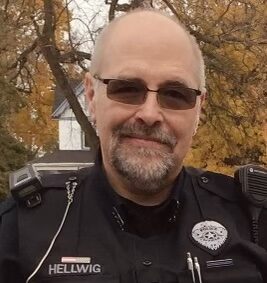by Keith Hellwig
Keith Hellwig worked in corrections in the Wisconsin State Corrections Department for more than 36 years. He has written several books not only about his experiences, but including the stories of many other correctional officers from around the world.
As someone who had worked in corrections for more than 36 years, it’s refreshing to see a program like Guards to Guardians. It’s a program that not only stresses the humanity of officers but also the frailties of officers. Frailties that we are all too often afraid to admit to possessing. The Guards to Guardians program addresses these frailties, whether it’s the stress, anxiety, PTSD, etc. that exist within every one of us. I find a sense of relief that the program offers questions at the end of each chapter that cause an officer to reflect upon themselves.
Very often we, as officers, don’t want to admit to weaknesses in our character or flaws in our reactions. We tend to keep to ourselves and bottle up emotions and often fall into self-medicating whether it’s through sex, food, alcohol, or drugs. Often we are too caught up with what’s going on around us to realize what’s going on within us. In addressing what is happening within us, we will better realize what we need to do for ourselves and for those incarcerated under our care and custody.
In looking back on my life as a correctional officer, I realize that one of the keys to personal peace and success is introspection. I truly feel that this program offers an opportunity for deep self-examination. I appreciate that at the end of each chapter there are questions, many that I haven’t thought of, that caused me to re-examine my thinking, beliefs, and values. The first question in the series that caught my attention was when I was asked, “What did you want to be when you grew up?” and then also the question “What about life did you find most engaging and interesting?” It made me sit back and think about whether I had actually done what I wanted to do with my life. I grew up wanting to be involved in law-enforcement in one aspect or another and ultimately ended up being involved in law-enforcement both behind the walls of a prison and on the city streets. These questions caused me to reflect on what I accomplished and made me realize that I had indeed accomplished a goal. Often we go through life without really realizing what we have done not only for ourselves but for others as well. Such introspection serves to not only make us better correctional officers but also better people.

 Get access to the monthly Rehumanization Magazine featuring contributors from the front lines of this effort—those living on Death Row, residents of the largest women’s prison in the world, renowned ecologists, the food insecure, and veteran correctional officers alike.
Get access to the monthly Rehumanization Magazine featuring contributors from the front lines of this effort—those living on Death Row, residents of the largest women’s prison in the world, renowned ecologists, the food insecure, and veteran correctional officers alike.